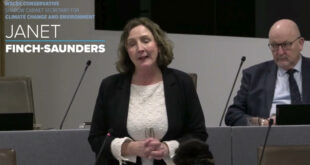Talking to John McRae, one of Orms’ directors, outside the practice’s offices where only 30 per cent of staff were back working due to the Covid-19 pandemic, he is remarkably upbeat.
‘2019 was probably one of our best-performing years financially, but also project-wise, both in completions and competition wins – which, of course, has helped into this year, too,’ he says.
Indeed, Orms is a practice that has been quietly growing over the past decade. With staff numbers pushing 70 in 2019 and into 2020, the practice is the largest it has ever been.
The commercial office and the leisure and hotel sectors have been particularly strong for Orms. Two significant London completions last year were its reworking of a former Royal Mail building at 160 Old Street and the Standard Hotel, created out of a former annexe of Camden Council’s town hall.
Orms’ performance was also boosted by competition wins, which included a new build office scheme at 101 Moorgate, London, for Aviva and the ‘milestone project’ of a mixed-use hotel scheme at the former Central St Martins site in Holborn. The latter, reworking the original Lethaby art school building and 1960s extension, creates a 430-bed hotel combined with residential and workspace, as well as retail and events spaces. It was a scheme, McRae says, ‘won on the back of the Standard Hotel and our experience in Camden’.
The Standard Hotel, London (photo Tim Soar)
This steady ‘building-on-previous-experience’ approach is the key to Orms’ success. The practice also keeps things tight, with a single London office, rather than spreading itself across multiple sectors and markets.
Orms’ expertise in retrofit is exemplified by the Standard, which re-used 94 per cent of the existing shell. While McRae admits the sustainability credentials on this and an earlier generation of projects were done ‘intuitively, before we had the tools’, this has now changed. The fruits of a working group, led by associate Rosie Bard, have seen the development of in-house toolkits for net-zero carbon calculation and modelling.
‘It’s something we intend to be doing now on all projects, whether a client has appointed us to do so or not,’ McRae says.
This working group was just one of four strands of research in which the practice has been engaging as part of a strategy to skill up in order to reposition itself by offering different services. The other research groups focus on technology, BIM, and the workplace, looking at aspects such as developing digital building twins, 3D printing of building components, material recycling and products. All the strands, McRae says, are not just linked to sustainability but also fall under the umbrella of redefining the future role of the architect by putting them back at the centre of projects. The climate emergency has brought this into sharp focus.
‘If the architect is to have an important voice in creating a new generation of buildings, being involved at RIBA Stages 0-1 and Stages 6-7 of the buildings are key. At the moment, a lot of us are only involved in the Stages 2-5 bit in-between’, he says.
The practice used the Covid lockdown as an opportunity to boost this research, working with partners such Heyne Tillett Steel, alinea and Beispiel. Two further working groups were set up looking at the high street and conservation and, rather than being furloughed, 12 staff from paused projects were transferred to work on them.
While the pandemic has resulted in a dip in projects, McRae remains positive as new enquiries come in and paused projects start to emerge from the pending tray. The challenge, as McRae sees it, is keeping the balance and right range of projects coming in. ‘The demise of the medium-sized practice has long been predicted, but we’re still here,’ he says. ‘The challenge, as always, is how can you punch above your weight while not being too big to do the really interesting small projects?’
Orms
- 44 qualified architects in UK
- £109,167 UK office architecture fees per member of UK architecture staff
- 36 years of practice
- 32% female architects in UK
- 7% BAME architects in UK
- Did sign up to Architects Declare in 2019
- 1 UK design award won in 2019
Source link


